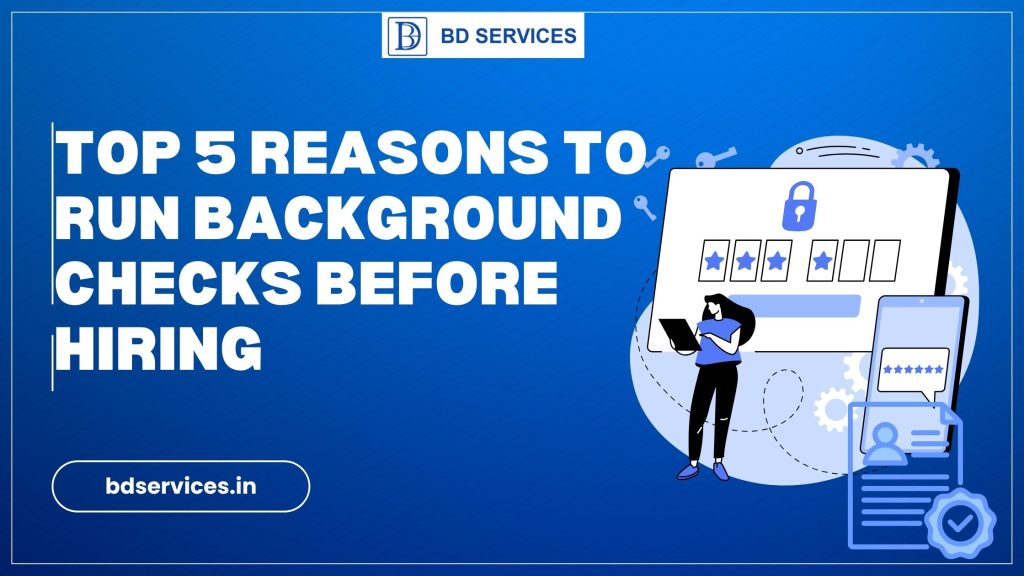Introducing new employees into the office space is always a major decision to come by. You do want the perfect match for your team, but at the same time, you need to make sure that all the others are safe. Many new companies are at high risk of a bad hire, which is why a background check is something to consider. It is a preventive action that can stop the problems from happening.
Ensure Workplace Safety and Protect Employees
The role of background checks in preventing workplace violence
It is not uncommon for workplace violence to kick in when you hire a person with a history of aggression. The background check can expose the criminal past and aggressive trends which a candidate might have displayed. A current study proves that the majority of workplace violence instances are perpetrated by employees or ex-offenders.
Safeguarding company assets and sensitive information
Employees often have access to valuable data or company property. Background checks can uncover theft, fraud, or security risks tied to criminal record check. For example, a retail chain avoided a security breach when it discovered a former employee’s theft history. This way, you protect your assets and confidential info from potential threats.
Building a safe working environment
You can take safety further by including background screenings in your safety plans. Make sure background checks align with OSHA and EEO rules to stay compliant. Tips include getting written consent, documenting your process, and reviewing results carefully. Simple steps like these ensure your workplace remains secure for everyone.
Reduce Hiring Risks and Liability
Avoiding negligent hiring lawsuits
If an employee harms someone or causes damage, your company might face a “negligent hiring” claim. It means you missed warning signs during screening. Courts often judge companies that didn’t do proper background checks. Running thorough checks can help you avoid costly lawsuits and protect your reputation.
Screening for criminal records and red flags
Types of background checks include criminal history, work verification, and education proof. These reveal red flags like prior misconduct, dishonesty, or employment problems. A detailed screening process helps filter out candidates who might pose risks later on.
Protecting company reputation
Hiring someone with a questionable record can damage your brand. Word spreads fast if problems surface with new hires. Showing you perform due diligence creates a positive image. Transparent hiring practices also build trust with clients and partners.
Improve Quality of Hire and Employee Retention
Verifying credentials and employment history
Many job seekers lie on resumes or fabricates qualifications. Employee background verification confirm if a candidate truly has the needed skills. For example, verifying previous jobs prevents hiring someone unqualified, saving time and money.

Assessing cultural fit and reliability
Background checks also give clues about a person’s character. Are they dependable? Honest? Long-term employees usually show trustworthy traits during screening. These insights help you choose those who will fit into your team well.
Data-driven hiring decisions
Using real background info makes your hiring smarter. It reduces guesswork and bias, leading to better choices. For example, reviewing criminal checks alongside interviews helps gauge overall fit and risk.
Comply with Legal and Regulatory Requirements
Understanding compliance with FCRA and other laws
Federal rules like the Fair Credit Reporting Act govern how you run background checks. You must get written permission, explain the process, and give candidates a chance to respond. Following these laws keeps your company out of legal trouble.
Industry-specific background checks considerations
Different sectors have special rules. Healthcare workers may need health record checks. Finance employees often require credit reports. Knowing these rules ensures your screening is lawful and thorough for your industry.
Avoiding legal pitfalls
Common mistakes include skipping consent forms or rushing the process. To stay safe, develop clear policies, document every step, and review each report carefully. This prevents lawsuits and ensures fair treatment.
Save Time and Reduce Recruitment Costs
Streamlining the hiring process
Digital tools can instantly pull background info. Automated screenings speed up hiring, so you don’t lose top candidates waiting for approvals. Quick checks mean faster offers and less time lost.
Preventing costly hiring mistakes
On recruitment A mistake not only costs you the employee’s salary but also has a disastrous impact on your team and brand. An ineffective staff can damage the company, result in high employee turnover rates, or lead to costly legal issues. By running a background check, these costly errors can be avoided, consequently extending the profitability of the investment.
Building a proactive hiring strategy
Make background checks part of your first interview. Set clear policies for consistent screening. Using a standardized process saves time and ensures fairness for everyone.
Conclusion
Running background checks is important before the hire. It has several benefits such as the safety of the workplace, lowering potential risks connected with the law, and giving more possibilities to take the right person. Moreover, it is additionally a time- and money-saving practice for the future. Make background screening a core part of your hiring process to protect your company and build a stronger team. Start today, and see the difference it can make.
